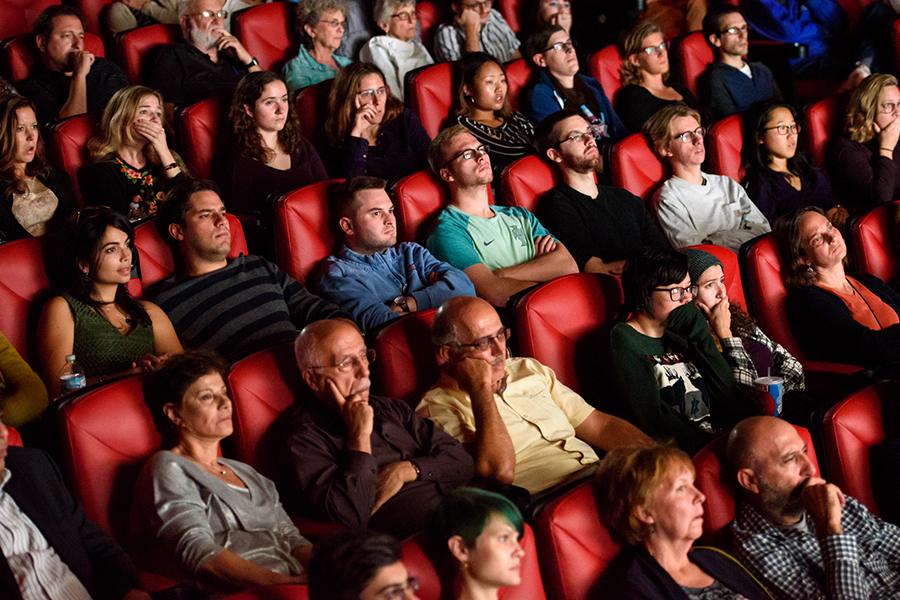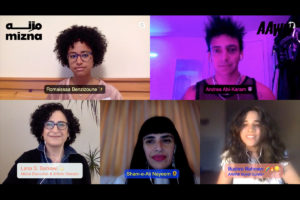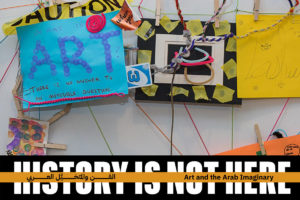
March 26, 2003
FILM FEST REVIEW: Mid-East Summit in Midwest
Biographical Info
MINNESOTA’S FIRST ARAB FILM FESTIVAL SPEAKS LOUDER THAN CNN
Jeremy O’Kasick, City Pages
At the close of Jenin Jenin, a Palestinian documentary that’s screening as part of “So Much I Want to Say: Minnesota’s First Arab Film Festival,” a street hawker pretends to call George W. Bush using a sandal, but is ironically transferred to Kofi Annan. The spontaneous skit draws an amused crowd as the hawker bumbles his words and begs Annan to visit war-torn Jenin, even promising that, if the UN Secretary General couldn’t find a ride, Palestinian refugees would send him a secondhand plane, or at least a gimpy jackass. The hawker’s skit speaks to the human need for laughter in the face of persecution and warfare, and offers a West Bank street scene that would never air on CNN–making it just the sort of image that the curators of this festival, hosted by Intermedia Arts, set out to present.
At such a distressing moment in history as this, the festival’s birth comes as a blessing to anyone in search of overlooked perspectives from the Middle East. Co-presented by the local Arab-American organization Mizna, “So Much I Want to Say” promises to give balance to grossly biased wartime media coverage and similarly narrow depictions of Arabs elsewhere in the West. Indeed, films such as Jenin Jenin (screening Sunday at 4:00 p.m.) remind even the most gung-ho of nation-builders that, while American bombs and international attention may fall on Iraq for now, peace in the Arab world is futile without an enduring commitment to Palestinian sovereignty.
In the aftermath of the Israeli assault on a refugee camp last year, Jenin Jenin makes use of sobbing victims and defiant young girls in a way that borders on propaganda. Going more in-depth is Crossing Kalandia (Saturday at 1:00 p.m.), an Intifada documentary that explores the economic realities behind the occupation and even criticizes the failure of a united Palestinian resistance.
And then there’s Divine Intervention (Thursday at 7:30 p.m.), a Palestinian drama that adopts satire as its weapon of choice and stands out as the festival’s most poignant film. Director Elia Suleiman regularly shuns dialogue and visual detail only to smash all minimalist connotations with over-the-top commentary–a Palestinian man accidentally blows up an Israeli tank when he tosses a fruit seed out his car window; an Arab woman takes on an entire Israeli firing squad as she alternately plays Jesus Christ, King David, and a jihad assassin with moves out of The Matrix.
Though it opens in sleepy Nazareth, Divine Intervention mostly takes place in the area between Jerusalem and Ramallah, the respective home cities of a tight-lipped filmmaker (played by Suleiman himself) and his girlfriend (Manal Khoder). Amid Israeli crackdowns and closed borders, the Palestinian couple can only rendezvous at a security checkpoint, where they engage in imaginatively erotic hand caressing and silently observe the daily skirmishes at the border. The scenes suggest a paralysis of artistic and amorous expression beneath the full weight of an oppressive occupation.
Confronting another obstacle to understanding between Arabs and Westerners, Suleiman’s first film, Introduction to the End of an Argument (Saturday at 7:30 p.m.), mocks degrading images of Arabs in U.S. films and television, from the mad terrorist and the sinister sheik to the exotic belly dancer. The screening of Suleiman’s experimental video provides the perfect introduction to a lecture given by media critic Dr. Jack Shaheen, whose exhaustive book Reel Bad Arabs: How Hollywood Vilifies a People gives detailed analysis of Arab depictions in more than 900 films produced between 1896 and 2001.
Dr. Shaheen would surely find comfort in “The Satellite Shooter” (screening Friday at 4:00 p.m. along with six other shorts), a 16-minute spoof that attacks the root of racist depictions. In it, an Arab-American wannabe cowboy named Tawfiq (Mohammed Assi) teams up with a Bible-thumping, quick-shooting crusader, the Kid (Clark Pendery), whose mission is to dismantle all home satellite dishes. When the sidekick realizes the racist motivations behind the Kid’s quest for cultural purity, he also sees how a free and open media can welcome more positive Arab images–as well as propagate negative ones. Perhaps one day Tawfiq will return to Palestine to confront his cultural identity just as a 35-year-old woman moves from Canada to Lebanon in Meantime in Beirut, and director Hakim Belabbes documents his return to Morocco from his Chicago home in Boujad: A Nest in the Heat.
As Arabs struggle to overcome barriers to expression in their own countries and unreceptive ears in the West, it’s not surprising that some voices remain unheard. The five-minute short for which the festival is named (it screens before Divine Intervention on Thursday) includes the still image of a wide-eyed female artist whose mouth is gagged by hands, and a looping voiceover: “So much I want to say. So much…” Twenty years after it was filmed, this conceptual short about what can’t be said still has a lot to say about the current world order.












